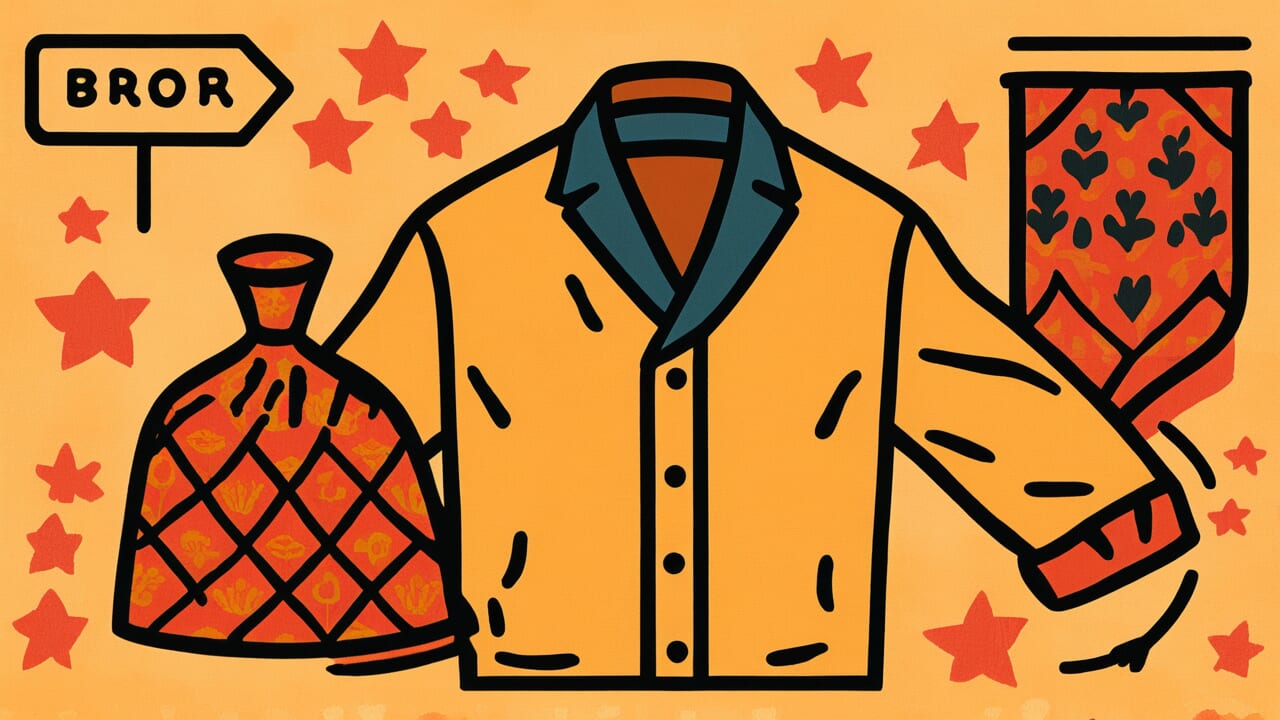How to Read “Yesterday’s rags, today’s brocade”
Kinō no tsuzure kyō no nishiki
Meaning of “Yesterday’s rags, today’s brocade”
“Yesterday’s rags, today’s brocade” is a proverb that describes how someone’s circumstances can change dramatically in a short time.
It means that a person who was so poor yesterday that they wore tattered clothes can become rich enough today to wear beautiful brocade garments.
This proverb is used to express a sudden positive turn in someone’s fortune. It applies when hard work finally pays off with success, when unexpected good luck arrives, or when someone escapes hardship and achieves prosperity.
Today, we can use it to describe people who achieve great business success or suddenly become famous when their talent is recognized.
However, this proverb carries deeper meaning than just a success story. It sends a message of hope that human destiny is unpredictable, and today’s poverty might be the prelude to tomorrow’s wealth.
People sometimes use it to encourage those in difficult situations, reminding them that circumstances can always change.
Origin and Etymology
The exact origin of this proverb is not clearly documented in historical texts. However, we can make interesting observations from how the words are structured.
“Tsuzure” refers to tattered, patched-up clothing full of holes. Meanwhile, “nishiki” means high-quality silk fabric woven with beautiful colored threads.
In ancient Japan, clothing was an important indicator of social status and wealth. Nobles in the Heian period wore brocade garments, while common people wore simple hemp or cotton cloth.
The vividness of this contrast is the heart of the proverb. It expresses dramatic change from the poorest state to the richest state within the close timeframe of yesterday and today.
During the Edo period, merchants rose to prominence, and some people made fortunes overnight. As social mobility increased, this phrase likely came into use to express the dramatic reversals of human fortune.
Also, by using clothing as an example—something everyone wears daily—the proverb makes the gap between poverty and wealth feel real and tangible.
Rather than abstract concepts of “poverty” and “wealth,” the concrete visual images of “rags” and “brocade” vividly portray the sudden reversal of fortune.
Usage Examples
- His company was on the verge of bankruptcy, but succeeded greatly with new technology—truly “Yesterday’s rags, today’s brocade”
- Back then he couldn’t even pay rent, but now he owns his own building—this is exactly what “Yesterday’s rags, today’s brocade” means
Universal Wisdom
Behind the continued telling of “Yesterday’s rags, today’s brocade” lies humanity’s thirst for hope. No matter how difficult the situation, humans cannot abandon hope for tomorrow.
This proverb reveals the truth of destiny’s uncertainty. Life is unpredictable, and today’s condition will not last forever.
This uncertainty is a source of anxiety for the fortunate, but becomes a ray of hope for those in difficulty. Our ancestors must have deeply understood this duality.
What’s interesting is that this proverb doesn’t mean only accidental good fortune. The closeness of “yesterday” and “today” shows that rapid change can actually happen.
It might be the moment when accumulated effort reaches a critical point, or when years of preparation finally bloom. In human society, things built up invisibly can suddenly take form one day.
This proverb also reflects the social nature of humans. People recognize their position through comparison with others.
The contrast between “rags” and “brocade” clearly represents changes in social status. As long as human society has hierarchical structures, stories of rising and falling will continue to emerge.
When AI Hears This
Rags and brocade are physically the same thing—collections of fibers. Yet their values become opposite because what changes is not the material itself, but the information attached to it.
In information theory, value can be measured as “the amount of uncertainty reduction.” When previously unknown information becomes clear, the information entropy of the same object drops dramatically.
Consider the moment when old rags are discovered to be relics of a historical figure. Physically, nothing has changed. Only the information tied to that cloth has changed.
Yet the market value can increase tens of thousands of times. This shows that adding information reduced uncertainty for observers and increased the resolution of meaning that object holds.
The same phenomenon occurs in modern big data analysis. A mere list of numbers has low value, but when you apply analytical methods that find patterns, business value suddenly emerges.
The data as material doesn’t change, but value is created by adding interpretation as information.
This proverb shows that the essence of value lies not in material but in information. The same object can have its meaning completely rewritten depending on what contextual information it connects with.
This is an insight that strikes at the core of the information society.
Lessons for Today
What this proverb teaches modern people is the importance of not being too trapped by current circumstances. When in difficult situations, people feel that state will last forever.
However, life is constantly changing.
What matters is believing in the possibility of change while steadily accumulating what you can do now. Even when circumstances seem to change overnight, there’s often invisible preparation and effort behind it.
If you keep planting seeds, the day will come when they sprout.
At the same time, this proverb is also a warning to successful people. There’s no guarantee that today’s prosperity will last forever.
It’s important not to forget humility and to maintain flexibility to prepare for change.
Modern society is an era of rapid change that’s difficult to predict. That’s precisely why living with the premise that circumstances will always change builds resilience.
Whatever situation you’re in now, it’s temporary. If you keep hope alive and don’t neglect preparation, the day will surely come when new doors open.


Comments